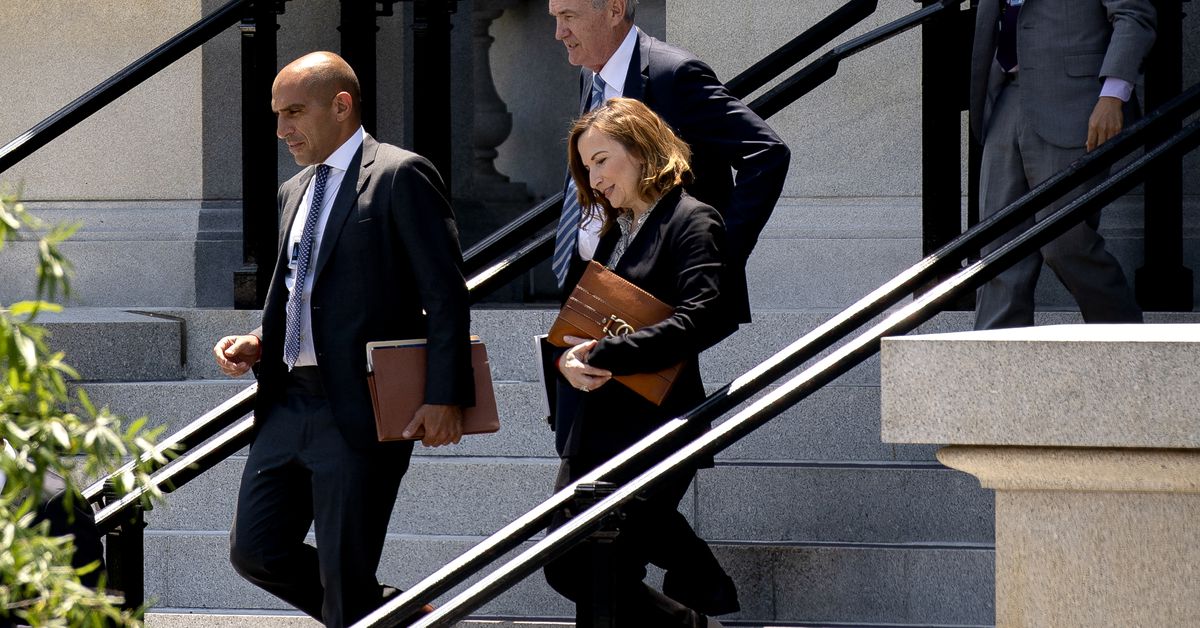This week, I consider the increasing number of regulatory nominees who bring some familiarity with digital assets to the table, even if their prosp
This week, I consider the increasing number of regulatory nominees who bring some familiarity with digital assets to the table, even if their prospective jobs don’t require it; the U.S. Treasury Department’s imminent, and highly consequential, moves to regulate the industry; and the clampdown on crypto lending at the state and federal levels.
More than ever, the old saying of “you may not be interested in politics but politics is interested in you” is ringing true for a field that until recently Washington considered too small to matter and too weird to comprehend. Neither description applies much anymore.
You’re reading State of Crypto, a CoinDesk newsletter looking at the intersection of cryptocurrency and government. Click here to sign up for future editions.
Rise of the crypto nominee
The narrative
An increasing number of nominees to state and federal regulatory posts have some sort of cryptocurrency background, whether as a researcher, participant or academic studying the sector. For those clamoring for regulatory clarity, this is likely a good sign. Moreover, this trend will likely continue.
Why it matters
Financial regulators will be responsible for how the U.S. government approaches stablecoins, decentralized finance, central bank digital currencies and a host of other crypto-related issues. Having regulators who understand crypto will increase the likelihood of more informed proposals (note: this doesn’t mean friendlier-to-crypto proposals).
Breaking it down
Something a little odd is happening.
Last week, U.S. President Joe Biden announced he intended to nominate Kristin Johnson, a professor of law at Emory University, and Christy Goldsmith Romero, the Special Inspector General for the Troubled Asset Relief Program (SIGTARP) and an adjunct professor at both Georgetown University and the University of Virginia, to the Commodity Futures Trading Commission (CFTC), a key federal regulator.
Before that, New York Governor Kathy Hochul announced she intended to nominate Adrienne Harris, a professor at the University of Michigan and adviser to the Digital Dollar Project to be the new Superintendent of the New York Department of Financial Services (NYDFS).
Biden’s pending Consumer Financial Protection Bureau director is Rohit Chopra, who has also served as a commissioner on the Federal Trade Commission.
And the next Vice Chair for Supervision at the Federal Reserve is rumored to be Lael Brainard, who is already on the U.S. central bank’s board as a Governor.
Each and every one of these candidates has experience – in some way or another – in crypto.
This probably was a coincidence. I don’t think Biden was explicitly looking for financial product experts who have dedicated time and research into crypto. But the fact that we’re now seeing so many potential regulators who have crypto in their background is interesting at the least.
We were discussing this in the State of Crypto Telegram group the other day and it does seem like this is going to be an emerging trend. Candidates for regulatory agencies may well have more and more crypto experience in the near term.
John Collins, a partner at FS Vector, told me to expect more crypto-native or crypto-savvy political appointees after Biden won the 2020 election in November.
Part of this is because as crypto becomes increasingly popular or mainstream, the chances of any given individual knowing about it also rise. But cryptocurrencies are also presenting possible new methods for solving existing financial issues, or new options for providing services like lending. Johnson, one of the CFTC commissioner nominee-designates, was described as being an expert in “complex financial products regulation,” including transactions and settlement. This type of knowledge will be invaluable to regulating new crypto derivatives products.
As in the case of Securities and Exchange Commission (SEC) Chair Gary Gensler, who taught a course on cryptocurrencies and blockchain while at MIT, I suspect this isn’t a signal of whether we’ll see favorable or unfavorable regulations for crypto, but whatever regulations we do see will demonstrate a greater understanding of this sector and related technologies than in years past.
However, we are seeing a lot more regulatory scrutiny of crypto now than we did a year ago, from multiple departments and branches of government. This scrutiny is only going to intensify, whether that’s through state regulator crackdowns on crypto lending firms (see below), federal crackdowns on stablecoins or actual guidance from agencies on how to approach digital asset products.
Better “tough but savvy” than “tough and clueless.”
Treasury gets busy
The U.S. Treasury Department plans to produce at least two different types of crypto-related actions in the near future.
The government wing will soon unveil sanctions and guidance to take on ransomware attacks. The goal is to mitigate future attacks that would require crypto payments.
While details are…
www.coindesk.com
